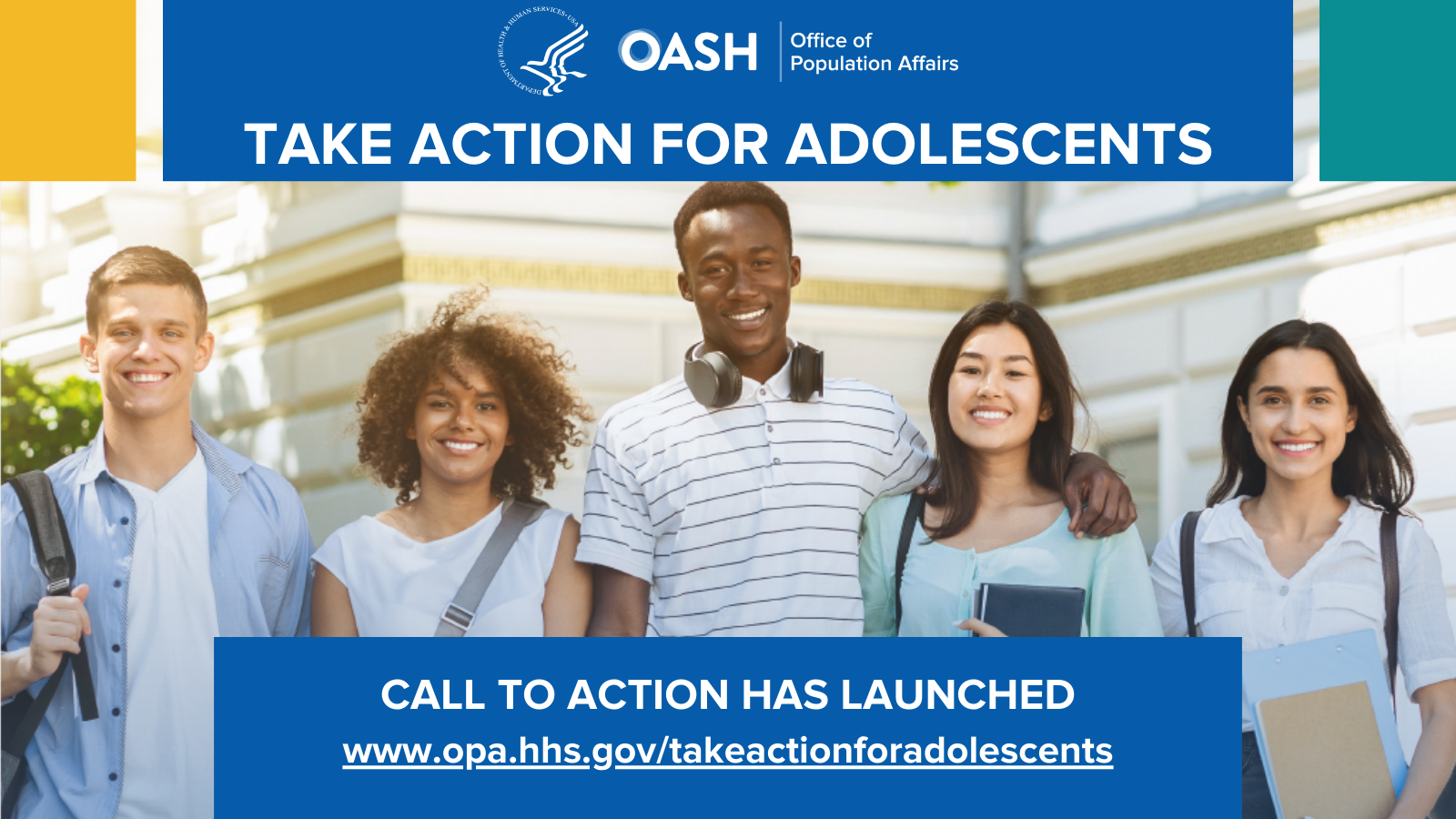Youth who receive special education services under the Individuals with Disabilities Education Act (IDEA 2004) and especially young adults of transition age, should be involved in planning for life after high school as early as possible and no later than age 16. Transition services should stem from the individual youth’s needs and strengths, ensuring that planning takes into account his or her interests, preferences, and desires for the future.
Take Action for Adolescents — A Call to Action for Adolescent Health and Well-Being

Take Action for Adolescents — A Call to Action for Adolescent Health and Well-Being (PDF, 35 pages) (Disponible en Español - PDF, 35 páginas) (“Take Action for Adolescents” or “the Call to Action”) is a call to action for adults—including policymakers, health care and human service providers and organizations, youth-serving professionals and organizations, researchers, parents, legal representatives, and caregivers—to work collaboratively for change that benefits young people. The Call to Action provides actionable guidance to support and build on the strengths, talents, and potential of the 64 million young people in the United States.
About Take Action for Adolescents
Learn about the eight goals of Take Action for Adolescents, how the Call to Action was designed, and how it will be implemented.
Use Take Action for Adolescents
Discover what action steps you can take to help create the coordinated systems, services, and supports that young people need to thrive. Review examples of federal programs and resources that support adolescent health and well-being.
Share Take Action for Adolescents
Spread the word about Take Action for Adolescents!
Resources
Adolescent Health: Think, Act, Grow (TAG)
This previous adolescent health initiative was a national call to action to improve adolescent health in the United States. TAG called upon organizations and individuals to prioritize activities that support the health and healthy development of all adolescents.
Other Resources on this Topic
Announcements
Briefs
Collaboration Profiles
Feature Articles
Programs
Publications
Resources
Tools & Guides
Websites
Youth Topics
Youth Briefs
Research links early leadership with increased self-efficacy and suggests that leadership can help youth to develop decision making and interpersonal skills that support successes in the workforce and adulthood. In addition, young leaders tend to be more involved in their communities, and have lower dropout rates than their peers. Youth leaders also show considerable benefits for their communities, providing valuable insight into the needs and interests of young people
Statistics reflecting the number of youth suffering from mental health, substance abuse, and co-occurring disorders highlight the necessity for schools, families, support staff, and communities to work together to develop targeted, coordinated, and comprehensive transition plans for young people with a history of mental health needs and/or substance abuse.
Nearly 30,000 youth aged out of foster care in Fiscal Year 2009, which represents nine percent of the young people involved in the foster care system that year. This transition can be challenging for youth, especially youth who have grown up in the child welfare system.
Research has demonstrated that as many as one in five children/youth have a diagnosable mental health disorder. Read about how coordination between public service agencies can improve treatment for these youth.
Civic engagement has the potential to empower young adults, increase their self-determination, and give them the skills and self-confidence they need to enter the workforce. Read about one youth’s experience in AmeriCorps National Civilian Community Corps (NCCC).






